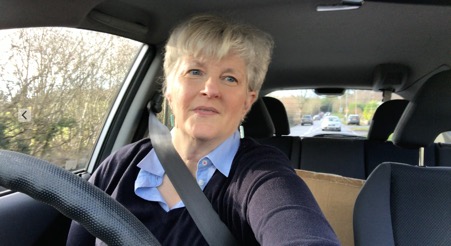“Yesterday is dead, tomorrow hasn’t arrived yet. I have just one day, and I’m going to be happy in it.”
― Groucho Marx
Last night, the Prime Minister asked me (and everyone else clinically extremely vulnerable) to shield again. I burst into tears.
For someone who draws their strength from the natural world, being confined to home is horrible. But I’ve felt increasingly vulnerable to this new, more easily communicable strain of COVID-19. Last time I shielded, I kept sneaking out for dog walks. This time, I won’t. It’s not safe enough, even in my little town, even in the two minute walk to the wide common where Dog plays his retrieval games. The common with the large horse chestnut trees, the crow’s nest, the squidgy muddy bits, the daisies, the vetch, the copper beech, the silver birch…
Yeah. Anyway.
I cried.
In the night, I dreamed of betrayals, of crowds, of infection… I dreamed of a party. It hadn’t meant to be a party – but friends, graduates, and family members kept crowding in and nobody seemed to care if I got ill and died. I’d been told I could holiday safely, but while I was napping, they arrived and started a huge party. The music was too loud for anyone to hear my protesting voice. My husband and daughter couldn’t get into my room – I was the only one who saw them pounding on the window and screaming. I woke up three times and each time went back into that same nightmare.
This morning, I drank my water, did my sun salutations, made my bed, looked out the window at the drizzly sky, sighed, and went to the bathroom. And that’s when it happened.
I was brushing my teeth, wondering if I’d done the right thing to leave my agent (I still haven’t found a new one), and something shifted. Inside me, I felt this bubbling feeling of optimism. I smiled – ruefully.
This always happens . I hardly ever get a chance to properly despair. Hope just rises up, even if I’m not ready for it. It bubbles up, and I begin to think of solutions to my problems. I will walk laps of the garden. I will buy a bird feeder and finally get to grips with all the local species of British garden birds. I will talk to people I know about my manuscripts, submit to more agents, speak to commissioning editors that know my work well.
I don’t know what that bubbling is, or why I have so much of it. It’s connected, in some way, to a dark sense of humour and a keen sense of the ridiculousness of life. I actually think I constructed it, in some of the darkest hours of my life, with the help of Groucho Marx, May West and WC Fields – along with some of the war poets. But now the bubbling has a life of its own. It makes me smile. It even makes me laugh out loud – I think in the sheer exhilaration of being alive – or maybe about the absurdity of being human.
I share it in my stories, but I wish I could bottle it up in some other, more direct way. I’d send it by click and drop to students and friends. I’d look for people on the street that seemed down and slip a little vial of it into their pockets. Instead, I’ll write some more about my lovely teen characters, the trouble they’re in and how they find their way out of it… how they construct their own bubble up for future usage.

 A nature writer has asked me about narrative voice and point-of-view. Specifically, he wants to think about the omniscience (or lack thereof) of narrative voices and where omniscience deviates from a third person and first person narrative voice.
A nature writer has asked me about narrative voice and point-of-view. Specifically, he wants to think about the omniscience (or lack thereof) of narrative voices and where omniscience deviates from a third person and first person narrative voice.


